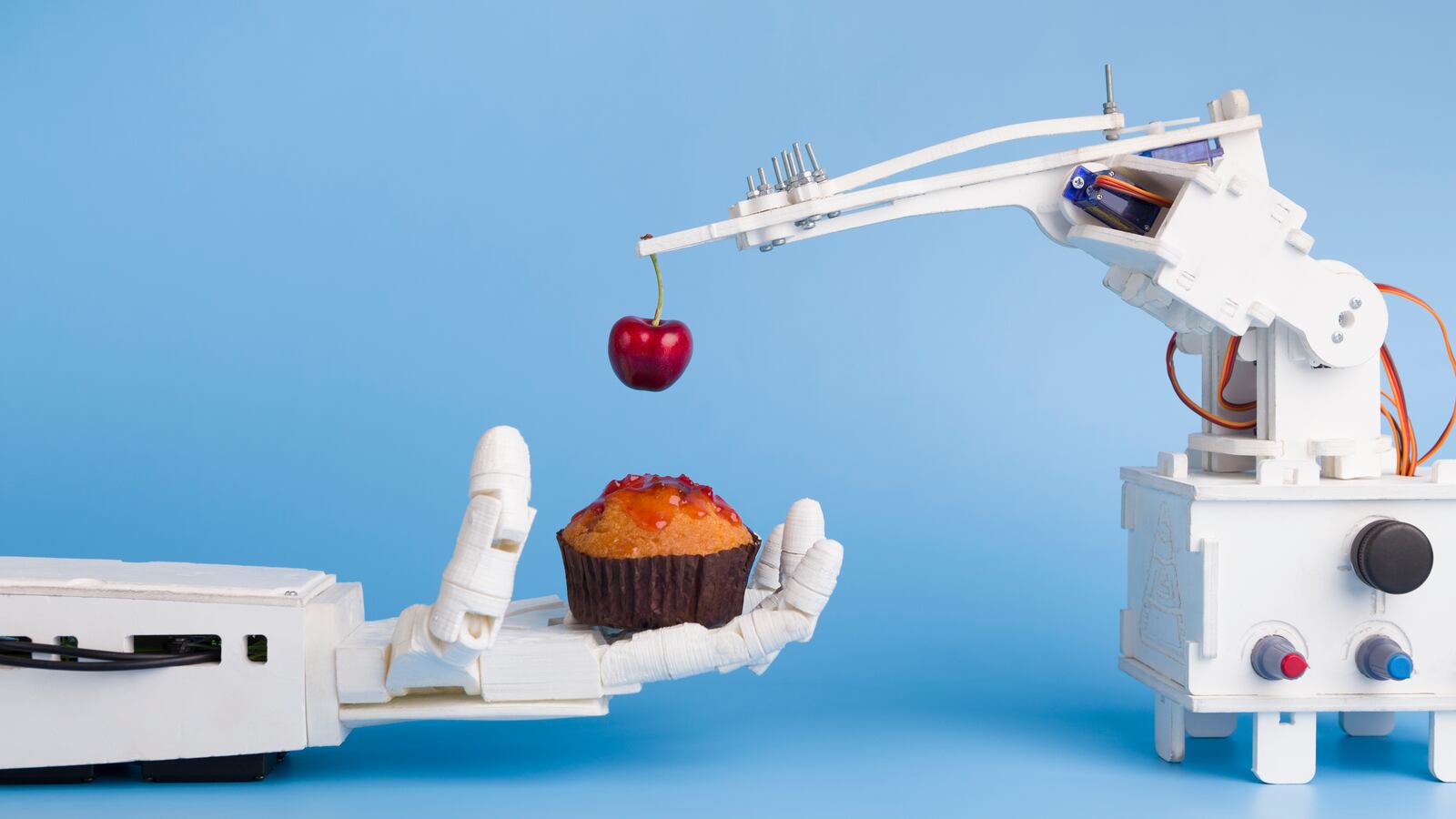Move over, Gordon Ramsay. There’s a new MasterChef in town.
Researchers at the University of Cambridge and appliance manufacturer Beko have teamed up to create a robotic chef that can cook up a perfect omelet. In doing so, it also learns how to make dishes with just the right taste and texture. In a new study published on Wednesday in the journal Frontiers in Robotics and AI, the researchers trained their “Iron Chef” to sample a dish while cooking, a skill they believe will help automated food preparation and allow you to one day have your very own in-house culinary chef.
The team had their work cut out for them. After all, taste is complex—and human taste isn’t just about flavor. Our brains factor in information about a dish’s appearance, smell, texture, and temperature to determine whether we like it or not. This happens while we’re chewing and cooking, like when you're sampling a dish as you make it to make sure you have the right amount of seasoning.
“When we taste, the process of chewing also provides continuous feedback to our brains,” Arsen Abdulali, a robotics engineer at the University of Cambridge and the study’s co-author, said in a press release. “Current methods of electronic testing only take a single snapshot from a homogenized sample, so we wanted to replicate a more realistic process of chewing and tasting in a robotic system, which should result in a tastier end product.”
In past experiments, the robot created by the University of Cambridge and Beko team learned to make a passable omelet. To up its cooking game, the researchers didn't send it to Le Cordon Bleu—they gave it a probe attached to a robotic arm that tests saltiness. This probe enabled the robot to “taste” different scrambled eggs and tomato dishes where the number of tomatoes and saltiness varied.
The robot then “tasted” nine variations of the same dish but with the egg mixture blended to mimic the varying textures of the chewing process. Based on all this information, it then created taste maps for each dish. These results helped improve the robotic chef’s ability to quickly and accurately assess the dish's flavor.
“When a robot is learning how to cook, like any other cook, it needs indications of how well it did,” Abdulali said. “We want the robots to understand the concept of taste, which will make them better cooks. In our experiment, the robot can ‘see’ the difference in the food as it’s chewed, which improves its ability to taste.”
The University of Cambridge researchers hope such a robot will be available in households and maybe even assisted living homes in the future. So don’t expect this one-recipe short-order cook anytime soon. But for now, they're working on expanding its palate—a little less salt and eggs and a little more sweet and oily. That means you’ll be able to enjoy The Great Robotic Bake Off on Netflix soon enough.






